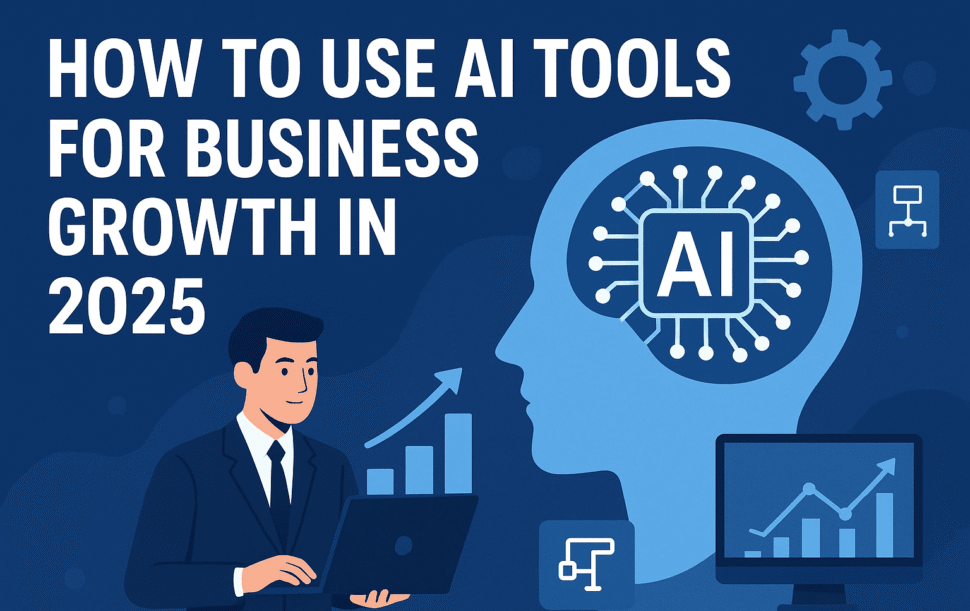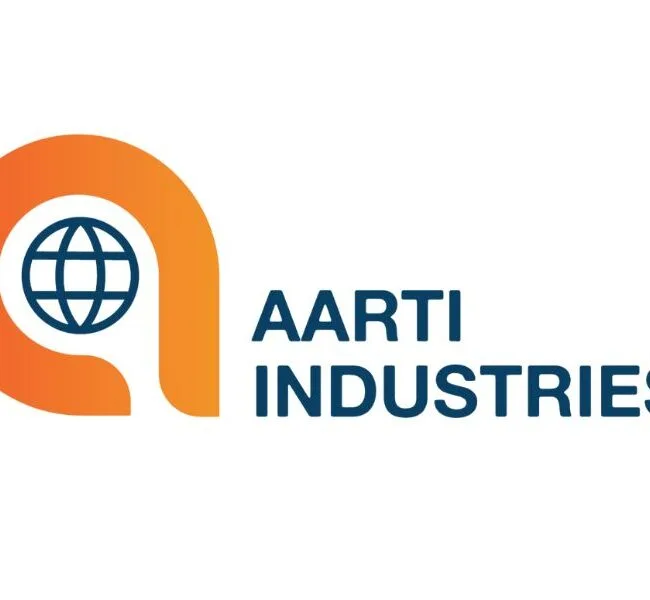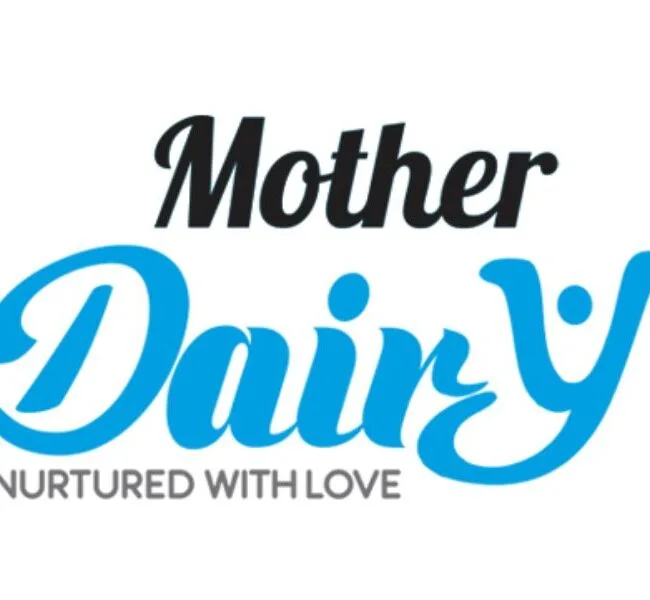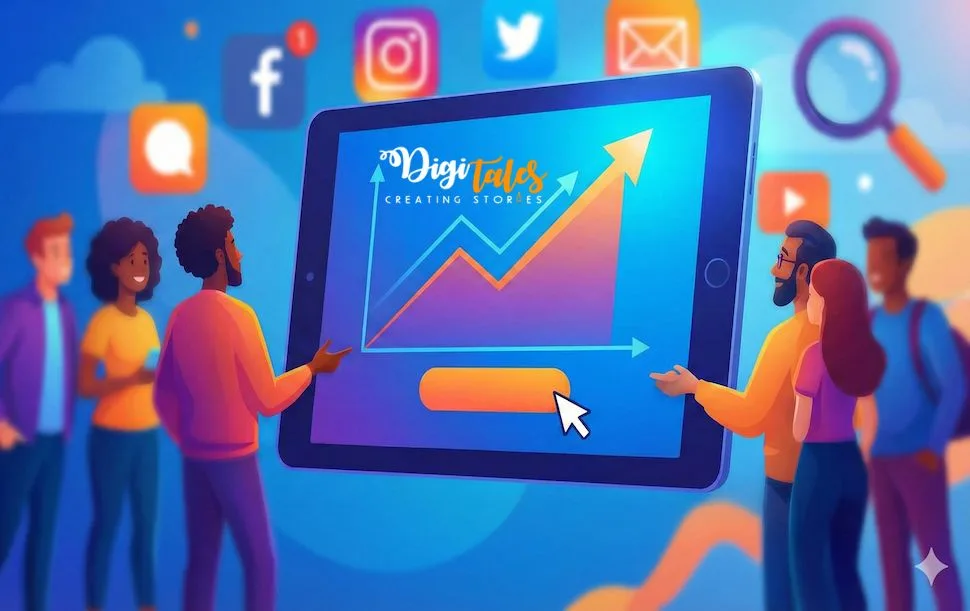
How to Use AI Tools for Business Growth in 2025
Artificial Intelligence (AI) is no longer just a buzzword—it’s a business necessity today. In 2025, companies that adopt AI tools are seeing faster decision-making, increased efficiency, and more personalised customer experiences. From automating repetitive tasks to creating data-driven marketing campaigns, AI is revolutionising how businesses operate. Whether you’re a startup founder, a small business owner, or a corporate leader, understanding how to use AI tools for business growth can give you a competitive edge.
AI Tools For Business For Smarter Decision-Making
AI-powered analytics help businesses process large amounts of data in real-time. Tools like Tableau AI, Microsoft Power BI with Copilot, and Google Cloud Vertex AI can uncover patterns, predict trends, and provide actionable insights.
Benefits:
Identify new market opportunities
Predict customer demand
Optimise pricing strategies
Pro Tip: Integrate AI analytics with your CRM to get a 360° view of your customer journey.
AI Tools For Business To Boost Sales
Marketing in 2025 is about personalisation at scale. Platforms like HubSpot AI, Jasper, and Copy.ai can create personalised email campaigns, SEO-friendly content, and ad copy in seconds.
How AI Marketing Helps:
Personalised ad targeting
Automated social media posting
Data-driven SEO recommendations
SEO Tip: Use AI keyword research tools like SEMRush AI Assistant to find high-intent search terms.
AI Tools For Business in Customer Support
Customer expectations are higher than ever. AI chatbots like Intercom Fin, Drift, and Zendesk AI can handle FAQs, troubleshoot issues, and even process transactions 24/7.
Why It Matters:
Reduced support costs
Instant query resolution
Improved customer satisfaction scores
Also Read: How AI is Transforming Social Media Marketing Agency
AI for Workflow Automation
AI automation tools like Zapier AI, Make (Integromat) with AI modules, and UiPath can streamline repetitive processes—freeing your team to focus on strategic work.
Examples:
Automating invoice generation
Managing inventory alerts
Scheduling meetings
AI in Product Development
Generative AI tools such as OpenAI GPT-5, Midjourney V6, and Runway AI can assist in product design, prototype generation, and market testing.
Advantages:
Faster product launch
Reduced R&D costs
Data-backed product improvements
Building an AI-Driven Business Strategy
AI works best when integrated into your overall business strategy.
Steps to Get Started:
Identify repetitive or data-heavy processes
Choose the right AI tool for each task
Train your team to use AI effectively
Measure performance and refine your approach
Ethical and Data Security Considerations
As AI adoption grows, businesses must prioritise ethical AI use and data privacy.
Best Practices:
Be transparent with customers about AI use
Ensure compliance with data protection laws
Use bias-free datasets to maintain fairness
The Future is AI-Powered
By 2025, businesses that strategically integrate AI tools will dominate their industries. From marketing automation to predictive analytics, AI is no longer optional—it’s essential for survival and growth. If you haven’t started leveraging AI yet, now is the perfect time to explore tools, test their capabilities, and incorporate them into your business growth strategy. The earlier you adopt, the further ahead you’ll be.











